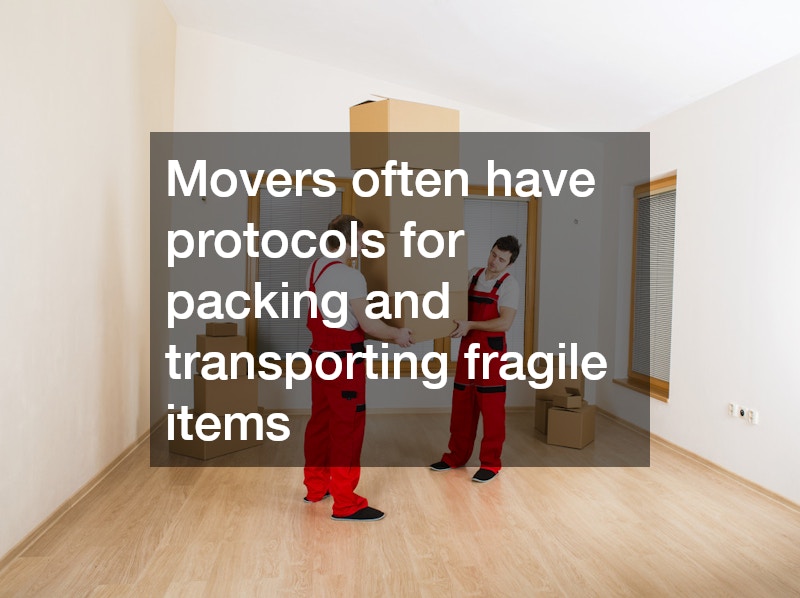Moving can be a stressful and daunting process, but choosing the right local movers can make all the difference. In this article, we will explore the essential questions you need to ask when hiring a moving company to ensure a smooth and successful move. The choice you make can significantly affect your experience, making it crucial to gather all necessary information upfront.
What services do you offer?
Packing and Unpacking Services
Understanding the packing and unpacking services your movers offer can streamline your moving process. Some companies provide comprehensive services, supplying materials and personnel to assist with the entirety of your move. It’s crucial to know if your movers offer not only the labor to handle your belongings but also the expertise to pack them efficiently and safely.
Movers that offer packing services can significantly reduce the time and effort you spend preparing for your move. By utilizing these services, you can allow professionals to handle the meticulous task of packing, often resulting in better organization and protection of your items. For some, this service is not limited to packing; they can also assist homeowners in unpacking at their new location, greatly alleviating stress.
Knowing who handles your belongings is as important as the handling itself. Familiarize yourself with the qualifications and training of the movers when it comes to packing services. It’s beneficial to ask if the service includes the dismantling and reassembly of furniture, as this can prevent mishaps during transit and ease the setup process in your new home.
Special Handling for Fragile Items
For those with delicate or valuable items, understanding how your movers handle such items is essential. Fragile items require special care, and knowing the procedures movers employ can provide peace of mind. It’s important to ask whether they use specialized materials or techniques to prevent damage to these items.
Movers often have protocols for packing and transporting fragile items such as fine china, artwork, or electronics. Learning about these protocols ensures that you’re entrusting your prized possessions to movers who will treat them with the care they require. Certain companies also offer custom crating services for particularly valuable items, adding an extra layer of protection.
Additionally, inquire if the company carries insurance that specifically covers fragile items. While their experience and skill may mitigate the chances of damage, having insurance can provide a safety net. It’s advisable to clarify how claims are handled and resolved in the event that an item is damaged during the move.
What are your rates and estimates?
Binding vs. Non-binding Estimates
When moving, it’s essential to understand the difference between binding and non-binding estimates and how they affect your total cost. A binding estimate locks in the price and prevents unexpected expenses, while a non-binding estimate provides an approximation subject to change. Clarifying this with your movers helps manage your moving budget more effectively.
Movers offering binding estimates give you the security of a guaranteed price within specific parameters. This means that unless you request additional services or modifications to the move, you won’t face unexpected charges. Conversely, non-binding estimates can change if the actual move surpasses the initially assessed circumstances, such as unforeseen difficulties or greater inventory.
It’s advantageous to determine which type of estimate suits your situation better. Asking movers for detailed criteria that differentiate their binding from non-binding estimates will prepare you for potential costs. A transparent discussion about estimates forms a crucial part of planning both the logistics and finances of your move.
Hidden Fees and Additional Charges
As you gather quotes, it’s important to ask movers about any hidden fees and additional charges you might incur. Typical additional charges include fuel surcharges, stair fees, or fees for moving particularly heavy objects. Being candid about these fees can save you from financial surprises on your final bill.
By asking the right questions upfront, you can uncover charges that aren’t immediately apparent during initial discussions. Some movers may charge extra for long distances between the truck and your home, or for multi-story climbs. Understanding these potential charges allows for better financial preparation and negotiation, where feasible.
It’s prudent to obtain a written statement of all potential extra costs from the mover. Such documentation provides a reference point should disputes arise, and ensures you’re not overcharged. Clarifying these costs at the outset ensures a smoother transaction and transfer on moving day.
Is your company licensed and insured?
License Verification
When evaluating moving companies, checking their license can offer peace of mind about their legitimacy. A licensed company adheres to industry regulations, which typically means they’re more reliable and trustworthy. Licensing information is often available through authoritative sources like the Department of Transportation for interstate moves and local regulatory bodies for intrastate moves.
Inquiring about a company’s license distinguishes reputable movers from those operating without proper authorization. Licensed movers are often subject to oversight and must comply with legal and safety standards, which protects consumers from fraudulent practices. Request the mover’s licensing details and follow through by cross-checking to ascertain their authenticity.
Insurance Coverage
Asking about a mover’s insurance coverage is a crucial step in safeguarding your belongings. Movers are generally required to carry basic liability insurance, but this may cover only a fraction of the actual value of your items. Discussing the types of insurance available allows you to assess the level of risk and protection provided.
Comprehensive insurance plans may provide coverage for more significant damage or loss, offering greater peace of mind. You can also consider purchasing supplemental insurance if the mover’s offerings are inadequate for the value of your belongings. Understanding how to file claims in case of any incidents is also paramount in ensuring smooth resolution processes.
By asking these essential questions, you can confidently choose a local moving company that will handle your relocation efficiently and safely. Ensuring that you’re informed about the services, rates, and credentials of your movers will help make your moving experience as stress-free as possible. The right mover will not only meet your logistical needs but will also provide peace of mind through compliance and professionalism.



